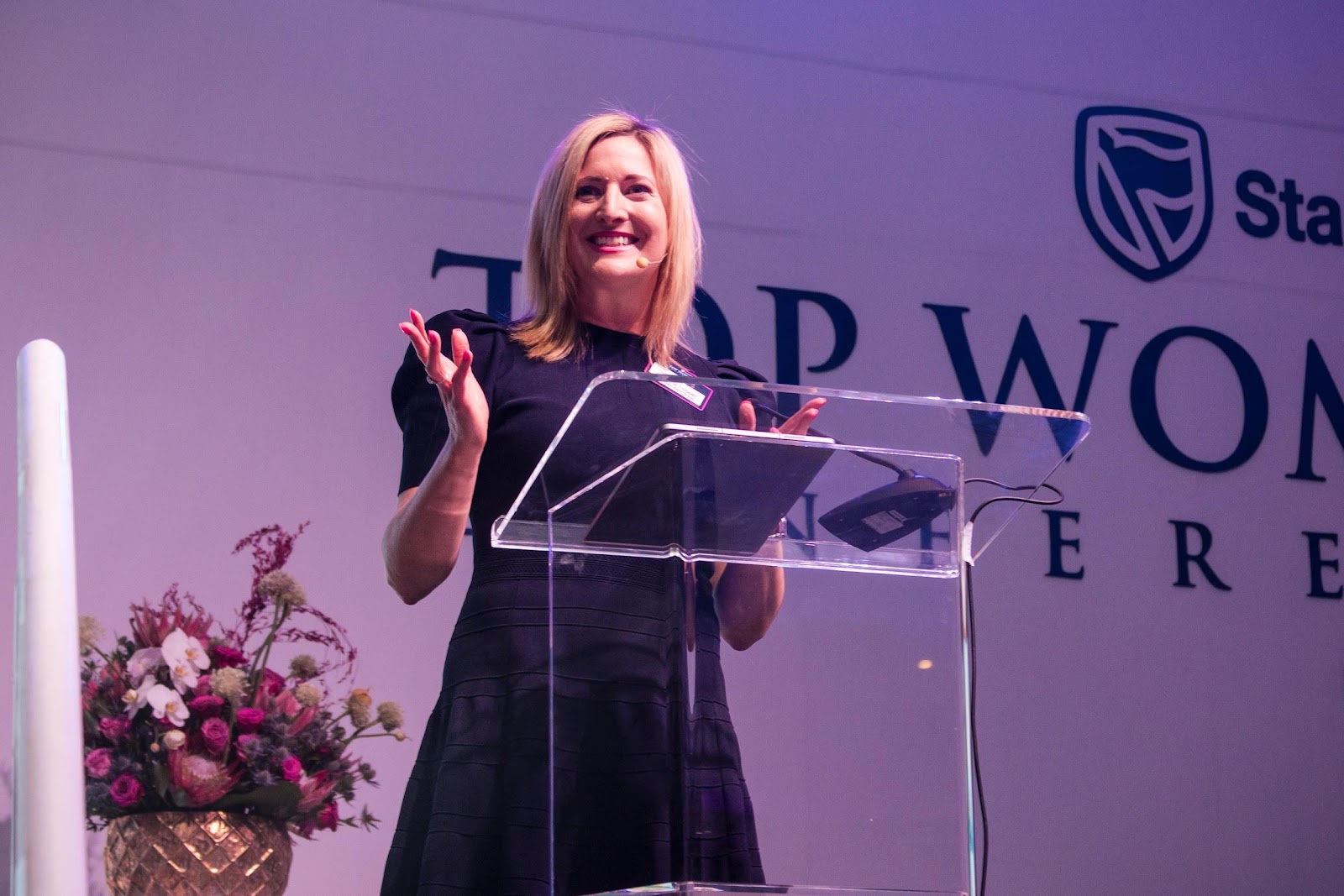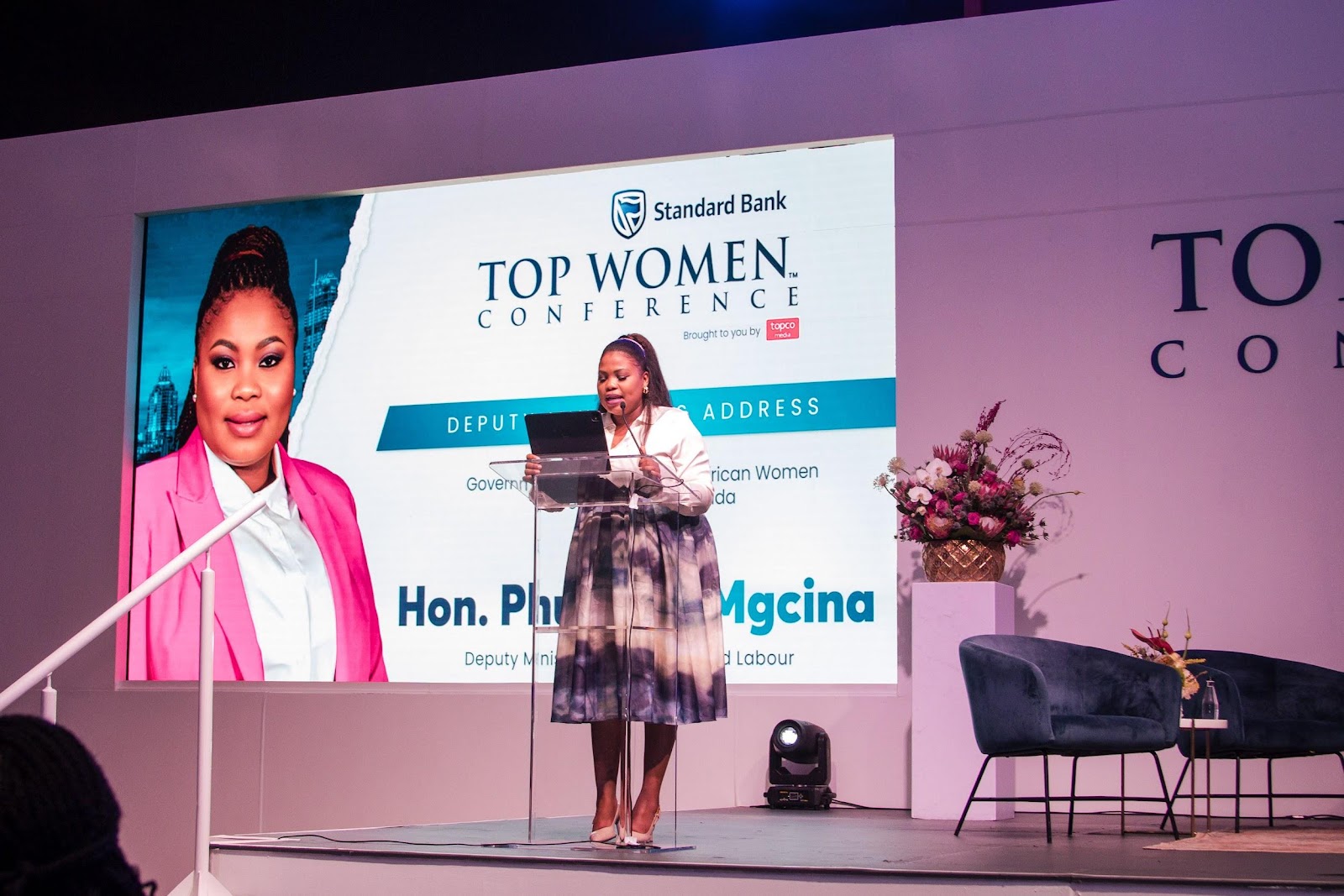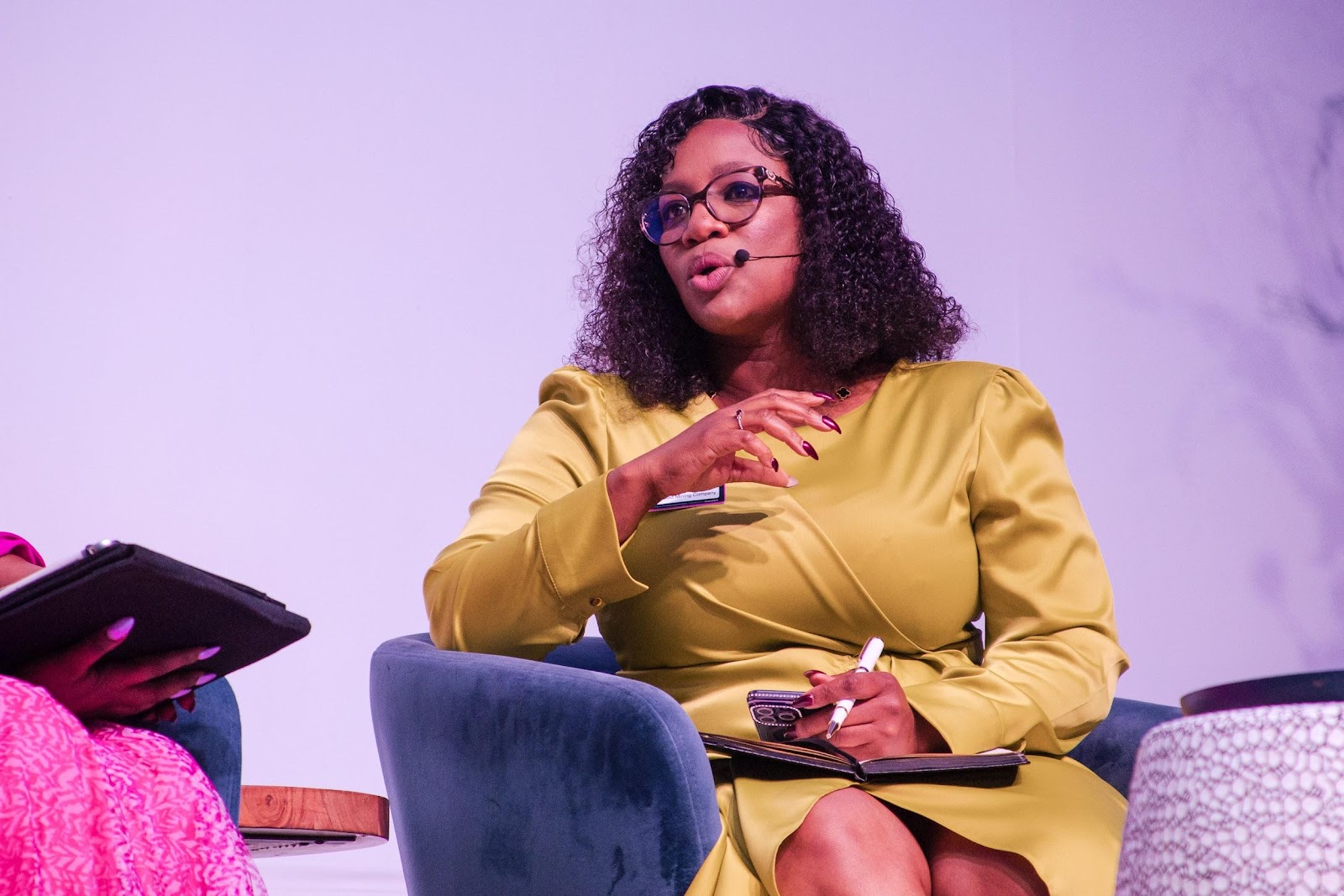Standard Bank’s Top Women Conference 2024 called for delegates to continue championing women’s empowerment and driving positive change in their communities and organisations.
The annual Top Women Conference returned to the Sandton Convention Centre on November 25 and 26, 2024. This year’s event, hosted by Topco Media in partnership with Standard Bank, brought together women leaders, entrepreneurs and advocates of women’s rights to examine challenges, celebrate accomplishments and outline strategies for advancing gender equality in business and beyond.
The conference, themed “Rise Above the Noise,” focused on navigating complex business environments to drive impact for women in business. Speakers included industry executives, activists, global thought leaders as well as artists and academics who shared insights on leadership, innovation and social impact alongside perspectives on how women in business should tackle the numerous challenges of working in a male dominated landscape.
The conference was opened by Simone Cooper, Head of Business and Commercial Banking at Standard Bank South Africa, who set the tone by highlighting the importance of economic empowerment for women. “This agenda includes a focus on transformative care systems with policies that not only support women in the workplace, but also empower entire communities. Whether it’s childcare, flexible working policies or mentorship programmes, corporate social responsibility is no longer a choice. It is a business imperative,” said Cooper. Cooper’s opening remarks also focused strongly on the role financial institutions should play in the development of gender equity through specific interventions like tailored banking solutions.
 Simone Cooper, Head of Business and Commercial Banking at Standard Bank South Africa
Simone Cooper, Head of Business and Commercial Banking at Standard Bank South Africa
Cooper’s speech was followed up by a powerful address by Her Excellency, Mrs. Nardos Bekele-Thomas, CEO of the African Union Development Agency-NEPAD who emphasised the link between gender equity and sustainable development. Said Bekele-Thomas: “Africa’s potential can only be fully realised when women are equally involved in shaping its future. Gender inclusion is not optional; it is the cornerstone of resilience and innovation.” She went on to tackle strategies to bridge the gender gap in climate action and policy-making across the continent.
Another heavy hitter followed. The Honorable Phumzile Mgcina, Deputy Minister of Employment and Labour, spoke on workplace equity and added her voice to the call: “Transformative policies are essential to creating workplaces where women can not only participate but lead. Change begins with holding organisations accountable for inclusivity and fair representation.”
 The Honorable Phumzile Mgcina, Deputy Minister of Employment and Labour
The Honorable Phumzile Mgcina, Deputy Minister of Employment and Labour
Discussions expanded into sustainability and its intersection with gender equality. Dr. Nombasa Tsengwa, CEO of Exxaro Resources, linked corporate sustainability to gender equity and explored how businesses could integrate sustainable practices while promoting women’s leadership in traditionally male-dominated industries.
“Sustainability is not just about the environment; it is also about equitable participation in the workforce. Companies need to ensure women are part of decision-making at every level,” she said. The potential of technology to develop entrepreneurship and reduce barriers for women in emerging markets also became a recurring theme across many of the other speakers and discussions.
The event featured fireside chats and panel discussions where some of the issues could be further ventilated. These provided platforms for attendees to exchange experiences and discuss ways forward through collaboration. Sessions included practical guidance on business expansion, strategies for navigating gender bias and pathways for entering leadership roles as well as how to further the development of women in the workplace.
Workshops also tackled mentorship and networking. Delegates shared how peer support networks can amplify women’s contributions and build resilience in competitive industries. The emphasis on collaboration showed the collective strength of women in overcoming challenges and driving progress.
Among them was Jenine Zachar, Head of Value Propositions and Client Experience at Standard Bank. She highlighted the importance of economic empowerment for women. “When women thrive economically, their communities benefit,” said Zachar. She also addressed the need for targeted financial support for women entrepreneurs and the critical role of mentorship in business growth. “Access to resources, combined with guidance, creates opportunities for women to excel,” she concluded.
Further discussions explored the challenges and opportunities facing women in the workplace, the importance of mentorship and networking and the role of technology in driving gender equality.
Mabo Malaza, Head of Learning, Development, and Transformation at Harmony Gold, addressed the necessity of mentorship and education. “To foster long-term transformation, we must prioritise access to education and leadership opportunities for women at all levels. Mentorship is not just about guiding; it’s about paving the way for others to lead,” she said.
 Mabo Malaza, Head of Learning, Development, and Transformation at Harmony Gold
Mabo Malaza, Head of Learning, Development, and Transformation at Harmony Gold
Malaza also underscored the need for inclusive strategies to support women in male-dominated industries and to advocate for equitable workplace practices to address systemic barriers affecting women in the workforce. “The workplace needs to evolve,” she said, calling for organisational cultures that value inclusivity and transparency. “More than just the programs, we need to create a sense of belonging in the companies,” She continued.
Malaza also spoke to the role of technology in enabling flexible work arrangements, which she described as essential for achieving gender parity. “Technology is not just a tool but a transformative force for breaking barriers.”
Sydwell Shikweni, Vice President of Transformation at Merchants, was another advocate for driving gender equity beyond the corporate world. One of his and his company’s strategic focuses is a program called The Township Hubs. “This is a community driven initiative with demonstrable socio-economic impact given it stimulates local job creation. We branded the initiative ‘Sisekhaya’ which means ‘we are home,’” said Shikweni. The Merchants Sisekhaya Contact Centre in Jabulani, Soweto was launched in October 2022, and Alex Contact Centre Hub launched in November 2024.
The conference concluded with a call to action which urged attendees to continue championing women’s empowerment and driving positive change in their communities and organisations. Delegates were encouraged to prioritise measurable goals and urged to remain vigilant in dismantling stereotypes and systemic inequities.

For more information on the event, visit topbusinesswomen.co.za.